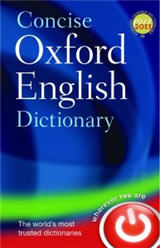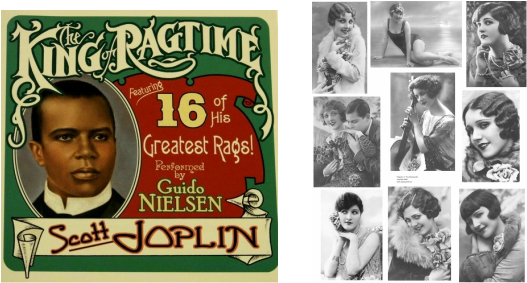|
No, I'm not talking shirts... It's that time of year when the Concise Oxford English Dictionary (COED) reveals the list of words that will be added to its latest edition. Given that this year COED celebrates its 100th anniversary, inquiring readers and writers may find this event especially noteworthy... or maybe not... maybe one needs to be in love with the English language to begin with. Like me... Okay, so Angus Stevenson, the editor of COED, blogged in mid-August that the 12th edition of the dictionary would include 400 new entries, many of which have their origins in our tech-centered, social media-networked society. A sample of these include: textspeak: language regarded as characteristic of text messages, consisting of abbreviations, acronyms, initials, emoticons, etc. retweet: to repost or forward a Twitter message sexting: sending sexually explicit photos or messages via mobile phone (ex. something often done by congressmen from New York) cyberbullying: use of electronic communication to bully a person, typically be sending messages of an intimidating or threatening nature  The meanings of 'follower' and 'friend' have also been amended to reflect their use in the social media milieu. "Not words" (how else to describe these textspeak acronyms?) also making the cut include: LOL, FYI, OMG, LMAO and POS (which, according to COED, means 'point of sale,' not 'parent over shoulder.')  In the category of fashion, some new additions include mankini ( a brief one-piece swimsuit for men with a T-back) and jeggings (tight-fitting stretch pants for women styled to resemble a pair of denim jeans). Of course, let us hope that their inclusion in the COED heralds their swift demise on the fashion scene, since neither are flattering to humans, regardless of size, age or gender. If you are thinking that the bulk of these new entries have been spawned by the fervid minds of the youth culture ---(What generation are we on now? Gen Y? the Millenials? Generation Next? Net Generation? Echo Boomers? The myriad expressions used to describe this demographic could fill its own lexicon...) --- anyway, you'd be right! But that's always been the case. Youth drives the lingo, even with the COED. Its first edition in 1911 included such cutting-edge buxx words as motorist, radioactive, rag-time and flapper. COED has always been the upstart, younger cousin of the dignified, venerable Oxford English Dictionary (OED). OED encompasses the history and the grandeur of our language. COED seeks to capture the verbiage spilling trippingly off the tongues of the times. Its first editors, the Fowler brothers, sought to document the language of the Edwardians and scoured society to include "collequial, facetious, slang and vulgar expressions with freedom, merely attaching a cautionary label." As the decades pass, COED continues to seek words that express the tenor of the times. The 1930s ushered in 'gamma ray' and 'brassiere.' The 1960s saw the addition of 'beatnik' and 'astronaut.' The decade of the '70s launched 'switched-on' and, one of my favorites, 'urban guerilla.' The 8th edition of COED added '80s jargon such as 'glastnost' and 'global warming.' (We've been talking about it that long and we still haven't really done anything about it?!?!?!?) Since the turn of the century, the COED has added these staples of our everyday conversations: 'Botox,' 'civil partnership,' 'E-reader,' 'subprime' and 'auto-tune' (a synonym for Britney Spears and T-Pain).
However, there exists another dictionary out there in the etherland which trumps the COED for what we librarians and teachers of information literacy refer to as RADCAB: relevancy, appropriateness, detail, currency, authority and bias. And that's the UD: the Urban Dictionary. My daughters turned me on to this website several years ago and it's now my go-t0 guide for the current state of the English language. It is truly a testament to the ever-evolving nature of language and to the astonishing wit and descriptive capacity of human beings. With over 6 million entries and 10 million definitions, it is, as Google notes, a "veritable cornucopia of streetwise lingo, posted and defined by its readers."(Love that phrase, wish I'd coined it!) Where else can you find such fabulous additions to the lexicon as: eater's remorse: The deep feeling of regret one feels after eating a large some of food, eating something unhealthy, or just eating in general. crosswalk creeping: The act of slowing pulling one's car forward into the pedestrian crosswalk while parked at a red light, for the purpose of preempting a green light. caffeine window: The daily time slot in which you must have some form of caffeine otherwise you will get a headache. No amount of caffeine after this window will cure the headache. A common ailment of coffee addicts who need their morning fix before they can function properly. fauxpology: When a person makes it sound like they are apologizing when, in fact, they are just shifting the blame or using twisted logic to argue their way out of responsibility for their actions. I guess that my point is that by the time words are added to the COED, they are already mainstream. Some may already be past their sell-by date. Domestic goddess? That's so '90s, so Roseanne when she was a sit-com star, not a reality TV celebrity. The Urban Dictionary records language as it is being born, culture as it is being lived. Language should live, breathe, change. Yes, it is often a generational 'thing.' Yesterday's 'far-out' is today's 'awesome,' and both were/are horribly overused. And when parents start using 'word up,' it's definitely time for the kids to mint another phrase. Whether these utterances will be adopted by the many does not matter. Whether they indicate the decline and fall of civilization, I will leave others to decide. I will just revel in the joy of words... a linguistic form that can be meaningfully spoken in isolation, but grows only when shared with others.
0 Comments
|
AuthorTo find out more about me, click on the Not Your Average Jo tab. Archives
February 2024
Categories
All
|


 RSS Feed
RSS Feed